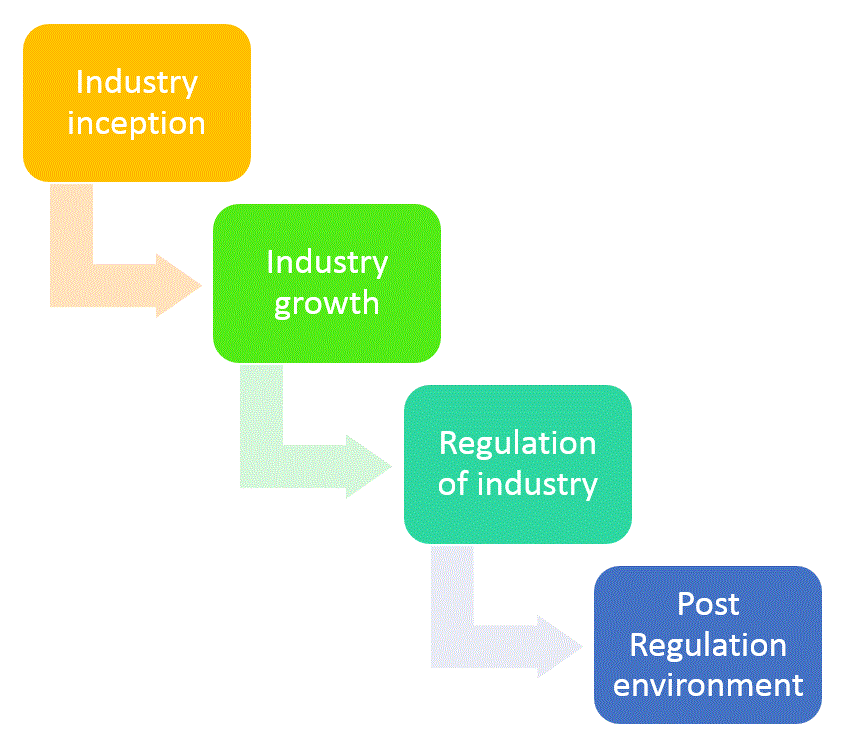Industry Regulation - Cryptocurrency in Africa and the rest of the world
As we all know is that Cryptocurrency is not heavily enforced with regulation from a financial aspect, but more regulation is due to happen at some stage. It will still be a while before the stringent regulation will be enforced on crypto.

I was recently at a BlockChain event (Funnily enough this event was sponsored by the largest banks in South Africa), and obviously there were many good presentations and new ideas. I found this topic specifically interesting as I am playing in the Crypto space now.
The reason that I am speaking specifically about Africa, is due to the fact that technology reaches African Countries so late, they normally get well tested technology, and then have a much easier adoption cycle. It has already been tried and tested in the rest of the world. Africa also have different problems than the rest of the world. For example: People cannot physically get to a bank due to many reasons. As a solution e-Money (Not Crypto) has already been accepted in places like Kenya and Tanzania as a source of currency. In this case the eMoney, mPesa, is a mobile phone-based money transfer and financing service. So from implementing the Mpesa, regulatory patterns emerged.
I have once read that a facet of building value, is recognizing the impact of industry regulation on the business's viability.
So can we replicate the patterns of the e-Money industry in the Cryptocurrency realm?

Let's look at each of the steps in the above:
Industry inception
The industry begins with one or two providers who engage closely with the regulator. These egulations are typically very light and this is justified because, the providers are normally small business, naturally compliant and the founders are intimate with all elements of their business. These providers invest in the relationship with the regulator and develop a reputation of trust and integrity in the market
Industry growth
Industry growth brings larger participants and new also new participants. The new participants have invested less in the regulator relationships, maybe a short term profit view? Then an event occurs: Business failure, illicit transaction, bad customer service. Now this can have a huge impact on the smooth running of the country's economy… Now the Lite regulation are blamed
Regulation if the industry
The regulator responds by imposing heavy and far-reaching regulations, licensing, capitalisation, system audit, reporting requirements, director liability / responsible person liability, etc
Post regulatory environment
Intense regulation which equals threat to viability of the reputable company. The threat is due to the costs of compliance and the implications of non-compliance (possibly criminal) . The fact that the industry becomes unattractive to honest players who have to report to conventional investors.
That being said the Cryptocurrency has some advantages over e-Money as there is risk in e-Money which is mitigated in the cryptocurrency space.
e-Money is a Closed loop System.
Closed loop systems allow customers to receive eMoney for their local currency in the form of eValue. This eValue can be traded on the platform of a counterparty. The eMoney has little or no value outside of the counterparty's closed loop. The customer stands to lose out where the counterparty is unwilling or unable to give value in return for the eValue.
Cryptocurrency is not a closed loop system as it has it's own value and can be exchanged for any currency globally. More importantly e-Money cannot form the actual basis for crypto currency regulation.
This will need to happen through time.
I will discuss more about this in future posts if anybody is interested. If you enjoy my topics please follow me on my blog @jacor
Nice @jacor
Shot you an Upvote :)
found this interesting to read - thankyou
Keep up the great work @jacor
Upvoted
Nice @jacor
Shot you an Upvote :)
Keep up the great work @jacor
Upvoted